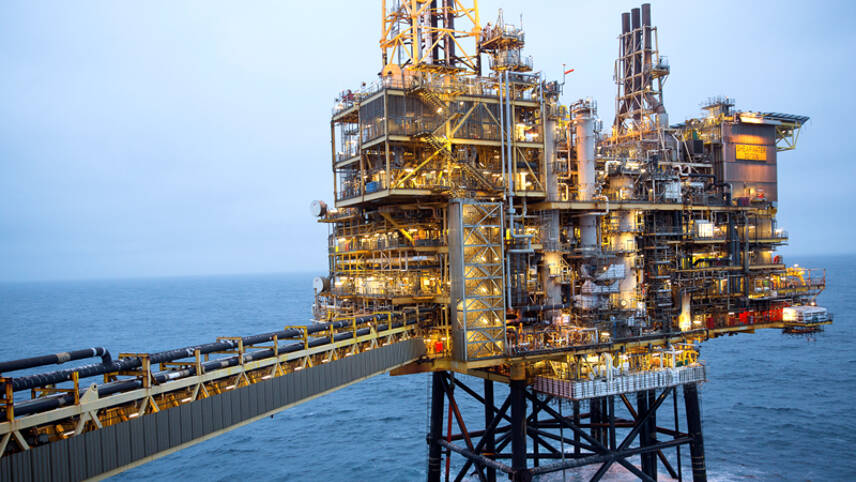Register for free and continue reading
Join our growing army of changemakers and get unlimited access to our premium content

Pictured: The Shearwater platform operated in the North Sea by Shell. Image: Stuart Conway for Shell.
Fossil Free London, Just Stop Oil, Extinction Rebellion and Scientists for Extinction Rebellion are staging a demonstration ahead of the Bill’s second reading, due to take place this afternoon ahead of a vote in the evening.
Activists are imploring MPs not to back the Bill due to its potential climate impact. If passed, the Bill will compel all future Governments to host a licencing round for new North Sea oil and gas exploration and extraction each year.
Fossil Free London spokesperson Joanna Warrington called the Bill’s key measures “nothing short of deadly”.
“The Government is either scientifically illiterate, is playing political games with our futures, or just doesn’t care, but, most likely – all three,” added Pete Knapp of Extinction Rebellion.
The concerns voiced by these activist groups are shared by climate scientists including Climate Crisis Advisory Group chair Sir David King, who formerly served as the UK’s chief scientific advisor.
King said: “The UK has played a globally leading role this century in reducing emissions and its dependence on coal for electricity production. How does this fit in with what the present government is doing?
“At this critical moment, the world needs countries and leaders to step up, not step away from their commitments and responsibility to ensure humanity has a survivable future… this is a total reversal of the British government’s commitment to reduce its emissions dramatically and do what is necessary for the world. I am shocked.”
There is broad consensus among climate scientists that, to give the best possible chance of limiting the global temperature increase on pre-industrial levels to 1.5C, global net emissions should reach zero by mid-century. An increase 0.5C beyond this point would result in an “unliveable” future for around a third of the global population.
Nations should only invest in maximising the efficiency of existing and already approved oil and gas projects instead, the Agency has stated.
The pathway details a mix of solutions to scale back fossil fuel supply and demand which, if taken together, would cut global fossil fuel demand by 25% within a decade and 80% by 2050.
Cost conundrum
Rishi Sunak’s Government has thrown itself behind the Bill using narratives related to energy security and bringing down costs for consumers.
Prior to the Bill, Sunak followed in the footsteps of his predecessor Liz Truss by confirming a licencing round with more than 100 spaces up for grabs.
Members of Sunak’s cabinet have accused opponents of their plans of wishing to “turn off the tap” overnight, jeapordising energy security. Yet, without the Bill, the UK Government has tended to run licencing rounds in most years. Moreover, North Sea oil reserves are in decline and plans for a gradual phase-down are already in place.
Labour has pledged to stop running any licencing rounds if elected, instead only permitting developments already in the pipeline. This Bill from the Conservatives would undermine any Labour Government’s ability to deliver this promise in the future.
On energy bills, the UK is positing reduced import costs that would be passed on to consumers. This rhetoric has repeatedly been debunked. Oil and gas are internationally traded commodities; they are sold globally to the highest bidders with the highest demands. The UK has no right to keep hold of fuels extracted in the North Sea and has concluded that, even if it did, this would not be the best decision economically.
Research from Global Witness last week revealed that the UK has exported an ever-greater proportion of North Sea oil and gas as production grew between 2004 and 2022.
Sir David King also highlighted that the Bill would result in less immediate and significant impacts on energy bills than measures such as improving energy efficiency. He said: “Oil and gas recovery can take up to 15 years to reach the marketplace, therefore the bill has nothing to do with addressing current energy issues caused by the Russia Ukraine crisis.”
Most Conservatives are expected to support the Bill, but there are some notable opponents including Alok Sharma, who was COP26 President and Boris Johnson’s Business, Energy and Industrial Strategy Secretary.
edie will be following the Bill’s sessions in Parliament. This article will be updated once today’s reading and voting processes have concluded.


Please login or Register to leave a comment.